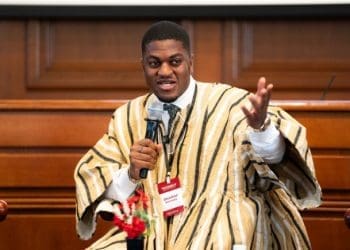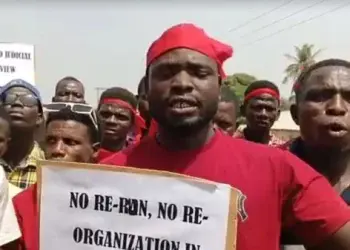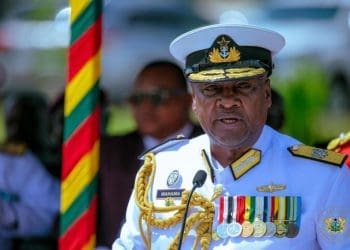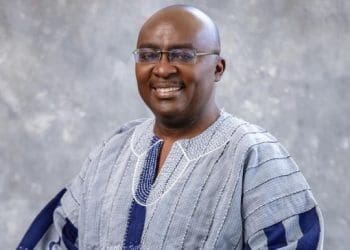Minister for Foreign Affairs and Regional Integration Samuel Okudzeto Ablakwa is facing a growing storm of public backlash and calls for his resignation following the resurfacing of a viral video in which he vowed to step down if any future government he served in ever chartered a private jet for official travel.
The video, widely circulated across social media platforms, was recorded during the presidency of Nana Addo Dankwa Akufo-Addo.
At the time, Ablakwa—then a leading opposition Member of Parliament (MP) for North Tongu—fiercely condemned the President’s use of luxury private jets.
He declared emphatically that his opposition was a matter of principle, not partisanship, and pledged that if an NDC government ever indulged in similar extravagance, he would “resign in protest.”
That pledge has now come back to haunt him.
Vice-President returns aboard private jet
Last week, Vice-President Jane Naana Opoku-Agyemang returned to Ghana from medical treatment in London in the United kingdom aboard a chartered private jet.
The flight, reportedly arranged for reasons of privacy and comfort, has stirred controversy and reignited questions about government spending, transparency, and political accountability.
Critics swiftly turned their attention to Ablakwa’s past statements, accusing him of hypocrisy and demanding that he act on his own words.
For many Ghanaians, this is a defining moment—not only for the Foreign Affairs Minister, but for the entire political class.
Ablakwa’s fierce record against jet spending
Samuel Okudzeto Ablakwa rose to national prominence in part due to his relentless scrutiny of President Akufo-Addo’s international travel costs. He emerged as Parliament’s most vocal critic of what he termed “a reckless culture of luxury in the skies.”
In April 2022, he accused the then-President of wasting over GH₵3.5 million on trips to the United States and the United Kingdom using the LX-DIO, a private jet costing $18,000 per hour, instead of the official presidential aircraft.
He described it as “a helpless costly addiction” that disrespected the economic hardship faced by ordinary Ghanaians.
Taking the fight to Parliament
In May 2021, he formally raised questions in Parliament, demanding accountability for GH₵2.8 million allegedly spent on a single trip covering France, Belgium, and South Africa.
With inflation climbing, the cedi weakening, and public debt ballooning, Ablakwa insisted the executive branch must model frugality and sacrifice.
His campaign, deeply rooted in ideals of accountability and integrity, became central to his image as a reform-minded public servant.
In March 2022, he declared: “I will never defend this kind of opulence under any regime, and if the NDC does the same, I will resign.”
Now the test of conviction
Fast forward to 2025, Vice-President Opoku-Agyemang’s private jet use has become a test of whether Ablakwa’s commitment to principle was genuine or politically convenient.
The silence from his office so far has only amplified calls for him to take a clear position.
Social media has erupted with commentary accusing him of double standards and betraying the trust of the very people who hailed him as a watchdog of the public purse.
Political hypocrisy or maturity?
While some argue that the circumstances surrounding the Vice-President’s travel may be different—such as health concerns—many Ghanaians are unmoved.
To them, Ablakwa’s earlier position was absolute and unconditional.
For a man widely regarded as a rising star within the NDC, the consequences could be politically and personally damaging.
His credibility—painstakingly built over the years—now hangs in the balance.
Should he choose to remain in office without offering a compelling explanation or stepping aside, critics warn, he will risk becoming a symbol of the very hypocrisy he once denounced.
Silence and the stakes ahead
So far, Minister Ablakwa has not publicly responded to the calls for his resignation or explained the government’s rationale for the Vice-President’s chartered flight.
This silence, for many observers, is deafening.
If he fails to act, not only could it tarnish his personal brand, but it could also dent the NDC’s image as it positions itself for the 2028 general elections.
In a political landscape where trust is already fragile, perceived double standards can be devastating.
A moment that could define a career
The next few days may well determine the legacy of Ablakwa.
He could choose to resign and be remembered as a rare politician who placed integrity above comfort and ambition, or stay on and watch his standing erode in the eyes of those who once championed him.
One thing is clear: Ghanaians are paying close attention.
The demand is not just for politics as usual—but for politics with principle.












